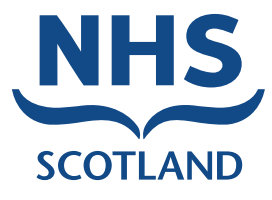Background:
Bracknell Urgent Care Centre (BUCC) is a facility dedicated to providing high-quality urgent care. The centre aimed to transition to a fully designated Urgent Treatment Centre (UTC) while continuing to meet the evolving healthcare needs of the local community.
Challenge:
As the demand for urgent care services increased, BUCC faced the following challenges:
-
Pressure on A&E departments, leading to long waiting times for urgent patients.
-
Need for more integration with local healthcare services for seamless patient journeys.
-
Ensuring that BUCC met national standards required for UTC status, including extended hours and on-site diagnostics.
Objective:
The vision for BUCC was to provide patient-centered care while working towards becoming a fully designated UTC. The strategic goals aimed to:
-
Reduce pressure on A&E by providing an alternative for urgent care.
-
Improve patient outcomes through enhanced integration with local healthcare services.
-
Achieve national specifications for UTCs, including extended hours and access to diagnostics.
Action Plan:
-
Provide Safe, Timely, and Effective Care:
-
Reduce pressure on A&E by offering high-quality, timely care for urgent patients.
-
Minimise waiting times and ensure appropriate care without the need for A&E visits.
-
-
Achieve National Waiting KPIs:
-
Focused on meeting KPIs related to waiting times and patient satisfaction.
-
Regular monitoring of service performance to ensure KPIs are met and exceeded.
-
-
Successfully Transition to UTC Status:
-
Worked towards meeting national specifications for UTCs, including providing extended hours and on-site diagnostic services.
-
Integrated services with NHS 111 to allow pre-booked appointments for urgent care.
-
-
Enhance Integration with Local Services:
-
Strengthened partnerships with local GPs, hospitals, and community care providers to ensure smooth patient transitions and coordinated care.
-
-
Promote a Culture of Excellence and Continuous Improvement:
-
Implemented a quality assurance program with regular audits and staff engagement in continuous improvement initiatives.
-
Ensured clinical governance and leadership to maintain high care standards.
-
-
Invest in Workforce Development, Digital Infrastructure, and Service Innovation:
-
Invested in staff training and digital infrastructure to enhance service delivery and improve patient care.
-
Explored innovative practices and technologies, including AI and remote monitoring, to enhance care.
-
-
Foster a Culture of Safety and Quality:
-
Prioritised patient safety with rigorous safety protocols.
-
Ensured continuous improvement in all aspects of service delivery, from clinical care to operational efficiency.
-
-
Promote Awareness of Self-Care and Community Resources:
-
Educated patients on self-care practices and awareness of NHS 111 and other community services.
-
Outcomes:
-
Reduction in unnecessary A&E visits, freeing up capacity for more critical cases.
-
Improved patient satisfaction with reduced waiting times.
-
Achieved significant milestones towards UTC status, including extended hours and on-site diagnostics.
-
Enhanced integration with local services, improving patient care coordination.
Success Indicators:
-
Decreased A&E attendances, demonstrating that more patients were accessing appropriate care at BUCC.
-
Positive patient feedback on waiting times and quality of care.
-
Achievement of national KPIs and progress toward full UTC designation.
-
Stronger partnerships with local healthcare services, ensuring seamless patient journeys.








